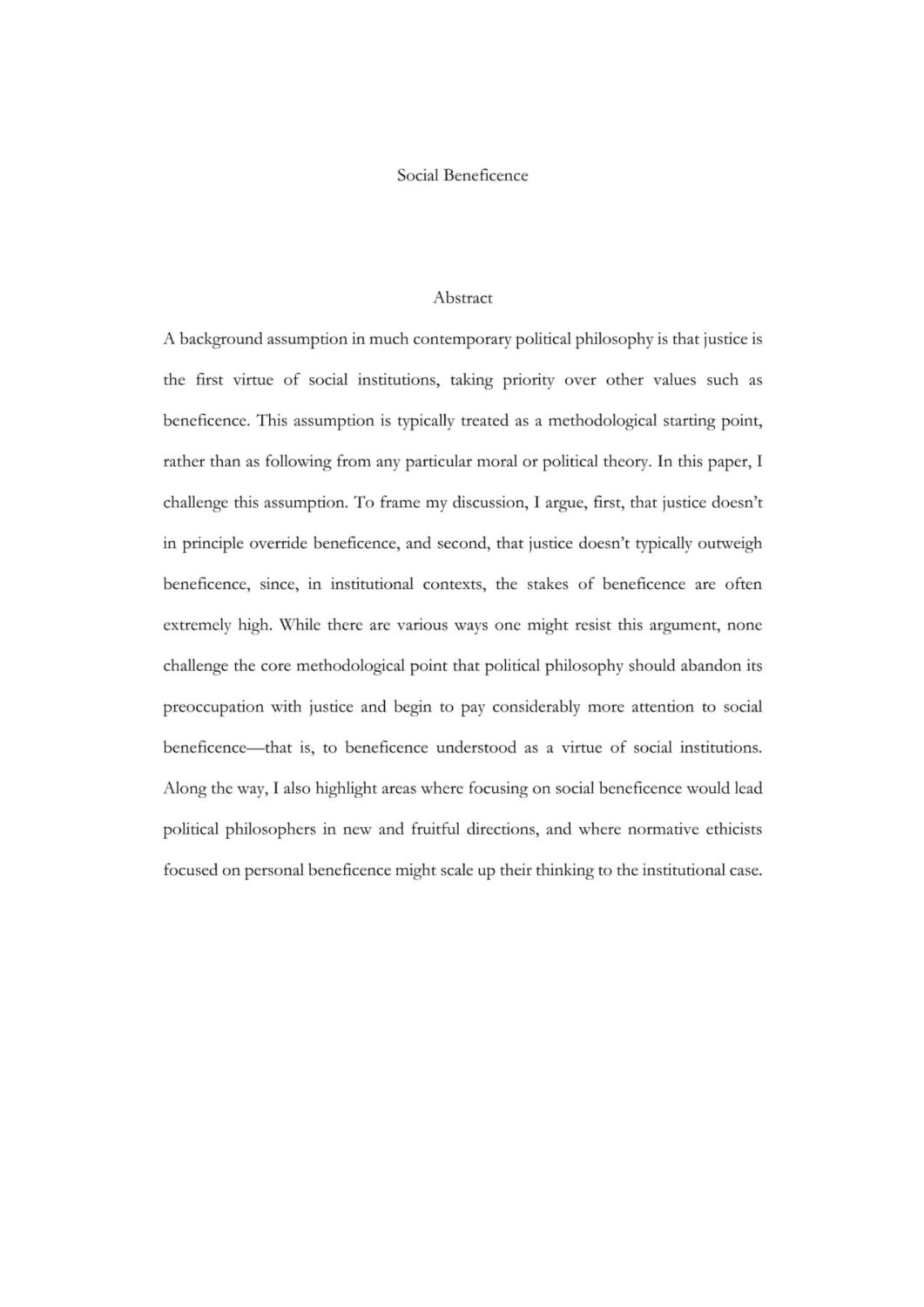Social Beneficence
Jacob Barrett (Global Priorities Institute, University of Oxford)
GPI Working Paper No. 11-2022
A background assumption in much contemporary political philosophy is that justice is the first virtue of social institutions, taking priority over other values such as beneficence. This assumption is typically treated as a methodological starting point, rather than as following from any particular moral or political theory. In this paper, I challenge this assumption. To frame my discussion, I argue, first, that justice doesn’t in principle override beneficence, and second, that justice doesn’t typically outweigh beneficence, since, in institutional contexts, the stakes of beneficence are often extremely high. While there are various ways one might resist this argument, none challenge the core methodological point that political philosophy should abandon its preoccupation with justice and begin to pay considerably more attention to social beneficence—that is, to beneficence understood as a virtue of social institutions. Along the way, I also highlight areas where focusing on social beneficence would lead political philosophers in new and fruitful directions, and where normative ethicists focused on personal beneficence might scale up their thinking to the institutional case.
Other working papers
Economic growth under transformative AI – Philip Trammell (Global Priorities Institute, Oxford University) and Anton Korinek (University of Virginia)
Industrialized countries have long seen relatively stable growth in output per capita and a stable labor share. AI may be transformative, in the sense that it may break one or both of these stylized facts. This review outlines the ways this may happen by placing several strands of the literature on AI and growth within a common framework. We first evaluate models in which AI increases output production, for example via increases in capital’s substitutability for labor…
A bargaining-theoretic approach to moral uncertainty – Owen Cotton-Barratt (Future of Humanity Institute, Oxford University), Hilary Greaves (Global Priorities Institute, Oxford University)
This paper explores a new approach to the problem of decision under relevant moral uncertainty. We treat the case of an agent making decisions in the face of moral uncertainty on the model of bargaining theory, as if the decision-making process were one of bargaining among different internal parts of the agent, with different parts committed to different moral theories. The resulting approach contrasts interestingly with the extant “maximise expected choiceworthiness”…
Aggregating Small Risks of Serious Harms – Tomi Francis (Global Priorities Institute, University of Oxford)
According to Partial Aggregation, a serious harm can be outweighed by a large number of somewhat less serious harms, but can outweigh any number of trivial harms. In this paper, I address the question of how we should extend Partial Aggregation to cases of risk, and especially to cases involving small risks of serious harms. I argue that, contrary to the most popular versions of the ex ante and ex post views, we should sometimes prevent a small risk that a large number of people will suffer serious harms rather than prevent…

